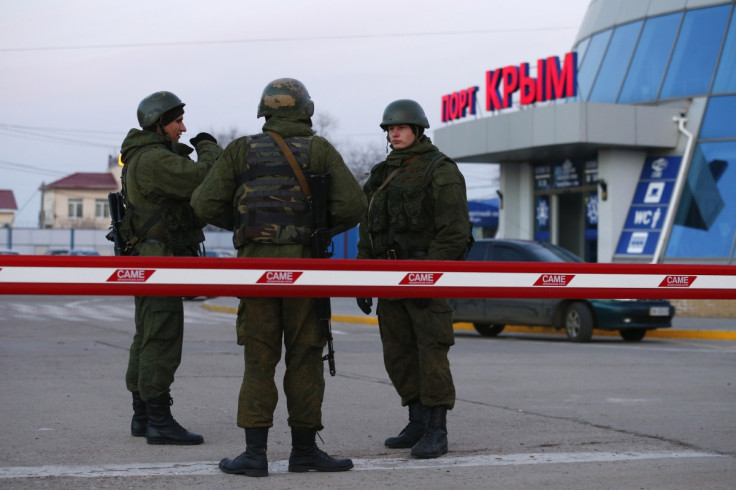US and Europe Divided on Sanctions as Russia's Grip on Crimea Tightens

Russian troops have tightened their grip on Crimea and pro-Russia upheaval has spread to several other parts of eastern Ukraine, with Moscow-backed demonstrators entering government buildings.
News of the escalating turmoil emerged as fissures developed between the US and Europe over sanctions against Moscow.
The BBC reported from Crimea that Ukrainian forces remained "almost completely neutralised in Crimea".
"Everybody is afraid of the war, everybody is afraid of the escalation of the conflict. People feel terrified and especially my friends. Some of them are trying to flee the area, to flee Crimea, to move to other, safer parts of Ukraine, to western Ukraine for example," an ethnic Russian from Crimea living in London told the BBC.
Earlier reports that Russia had served an ultimatum on Ukrainian troops in Crime to withdraw or face military action had triggered heightened tension, but the deadline passed without violence.
However, Moscow rejected world leaders' calls to withdraw from Crimea, saying its military action was aimed at securing the safety of Russians in the region and protecting democracy.
More challenges for Kiev in east
As Kiev's grip on Crimea appeared to be slipping, pro-Russian movements gained momentum elsewhere in the country, with reports saying Moscow-backed forces took over a government building in Donetsk, which has a Russian-speaking majority.
Similar protest movements were witnessed in several other cities including Odessa and Luhansk.
At an emergency meeting at the UN, Russian ambassador Vitaly Churkin said ousted Ukraine president Viktor Yanukovich had requested Moscow send troops, saying the country was "on the brink of civil war," and that "chaos and anarchy" were plaguing the country.
Russian military action is not a human rights protection mission ... It is a violation of international law.
The United States rubbished Moscow's claims, with ambassador Samantha Power saying military action in Crimea could have devastating consequences.
"Russian military action is not a human rights protection mission," Power said. "It is a violation of international law."
President Barack Obama held an emergency meeting with his national security advisers to discuss measures to isolate Russia on the international stage following its military incursion into Crimea.
The White House said all military engagements with Russia were suspended and that trade and investment talks with Moscow were put on hold.
The US State Department was preparing to impose sanctions on Russia including sanctions on Russian banks and freezing the assets of Russian public institutions and private investors, Reuters reported.
However, the report added that the US was hesitant about acting alone and wanted the European Union to adopt a tough line against Moscow.
While countries in eastern Europe largely supported the aggressive stance by the US, EU foreign ministers remained divided over action against Russia.
There were strong calls within the EU to place mediation ahead of threats and sanctions against Moscow, a situation the US has found tough to deal with, especially after facing opposition in the UN on its plans to throw Russia out of the G8 group of nations.
"The most important thing is for us – the United States -- to make sure that we don't go off without the European community. Their interests are really paramount if we are going to do sanctions of some kind. We have to have them on board with us," said Harry Reid, Senate majority leader, told Politico.
© Copyright IBTimes 2024. All rights reserved.






